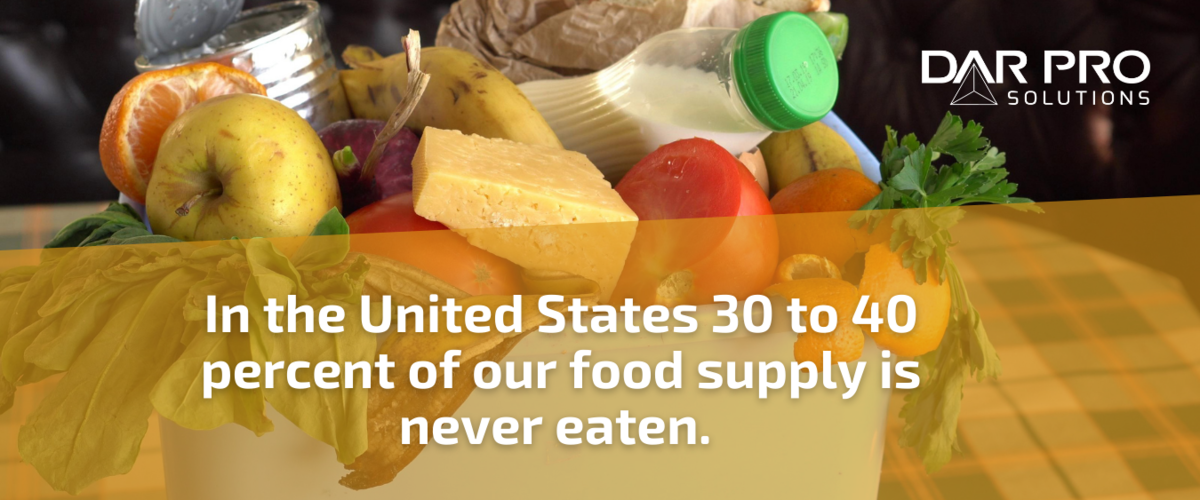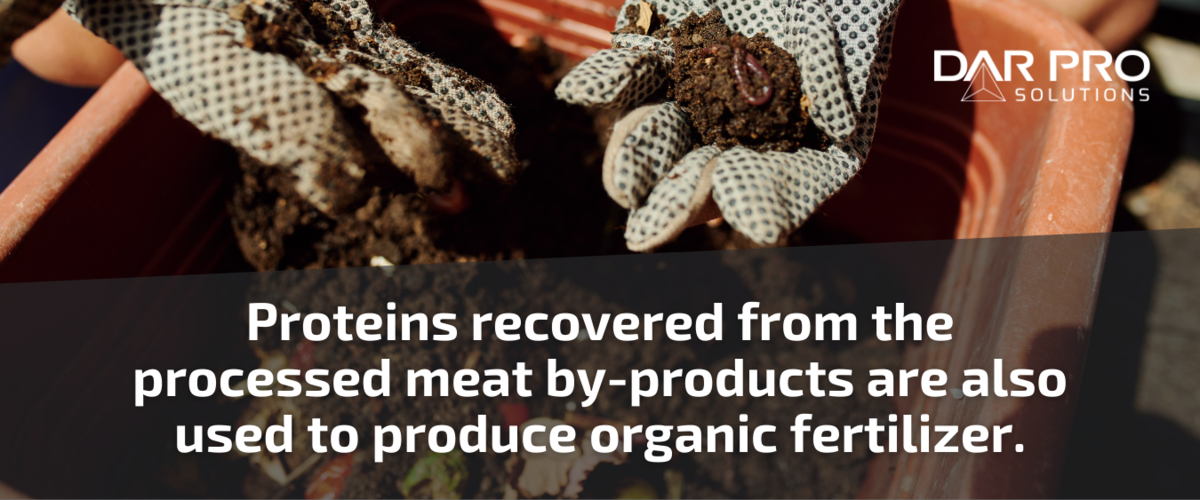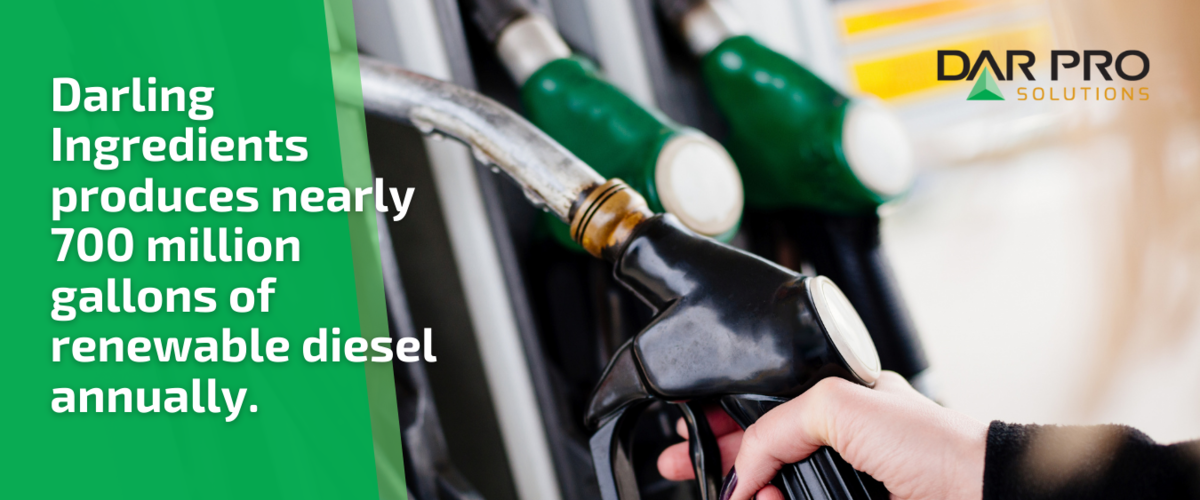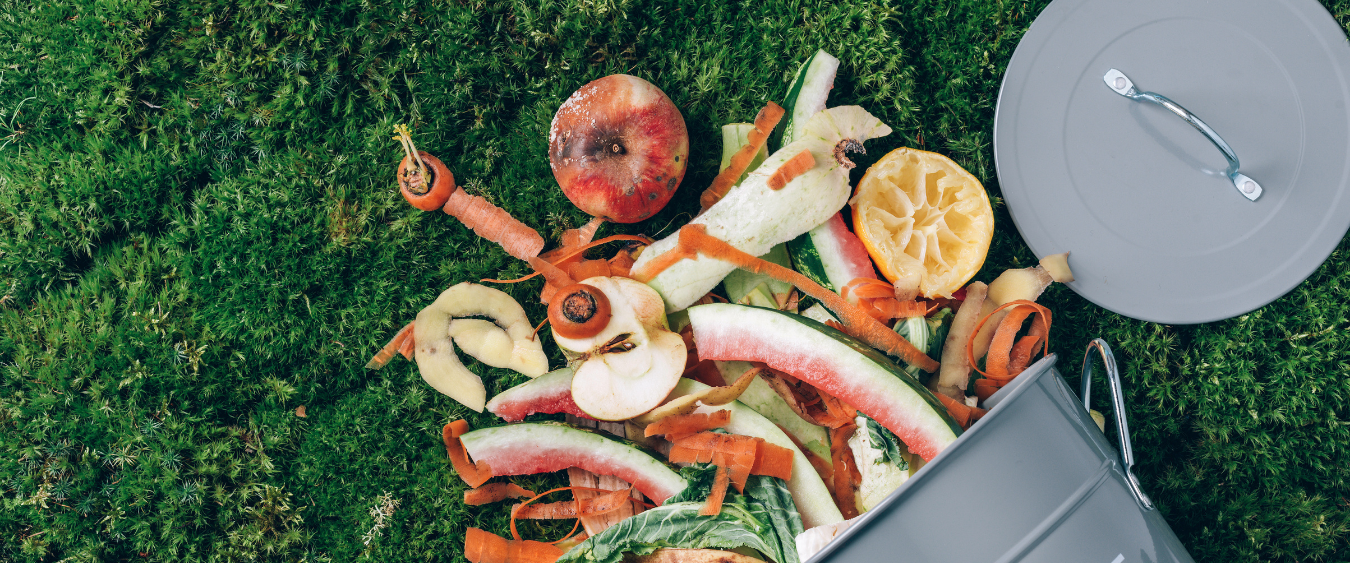We waste a lot of food
In the United States 30 to 40 percent of our food supply is never eaten. The average citizen lets $1,600 of food go to waste per year. It extends beyond the United States, too, of course. According to Agricultural Organization of the United Nations (FAO), the world throws away nearly 1.3 billion tons of food each year - roughly a third of what is produced for human consumption.
Not only are we wasting food, but we are wasting the resources used to produce it. In the end, the consequences of this food waste issue not only affect people, but it also negatively impacts the environment.

All that waste must go somewhere
The billions of tons of food waste has to end up somewhere. Most of it goes into a landfill. The EPA states that food waste is the single most common material landfilled and incinerated in the U.S.
In its simplest sense, the fight against food waste begins by reducing the amount of waste that goes toward landfilling. There are a couple of different alternatives to landfilling, like composting, which involves waste breaking down naturally and eventually becoming ingredients in fertilizer.
Another highly effective way to reduce landfilling is by rendering, which takes inedible meat byproduct and turns it into ingredients used in the production of biofuel as well as an array of household products.
Rendering and sustainability companies play a vital role in this fight in reducing our country’s total food waste output. At Darling, not only do we render inedible meat byproduct, but we also collect used cooking oil that would otherwise end up in city sewer systems or landfills and repurpose it into green fuel to help curb harmful emissions.
Food waste isn’t just the leftover scraps from a restaurant plate, it’s also the unused ingredients and byproducts of making the food. Our purpose is to repurpose by reducing landfilling as much as possible and giving this waste a new life. What might be waste to restaurants has value when placed in the right hands.
How to reduce food waste: giving it a renewed purpose
The rendering process converts inedible meat byproduct into pathogen-free feed protein and other valuable end products while reducing the negative effects of the carcasses on the environment. Rendering prevents the natural decomposition of meat by-products generated by the food we eat. This prevents emissions from decaying carbon and destroying any pathogens from being released to the environment and redirects it away from a landfill. Rending is the safest and most efficient method of handling food waste. It is also the only method that repurposes 100% of the material for a variety of industries.

Meat byproducts fueling the fight to reduce food waste
The proteins recovered from the processed meat by-products have nutritional value and enhance the health and well-being of pets and animals. It is also used in producing organic fertilizer. These ingredients are also used in a variety of household products.
What the finished product goes toward:
- Biofuel
- Pet food
- Hand sanitizers
- Soaps
- Protein bars
- Sports drinks
- Collagen face creams
DAR PRO recycles roughly 40 percent of all meat byproducts collected in North America. We also return over 108 million gallons of water to the environment each year through this process. Landfilling is never the answer when the waste going into it can otherwise be given a renewed purpose.

Renewable diesel from food waste cultivating a healthier planet
Similar to inedible meat byproduct, used cooking oil has value when placed in the hands of a reputable provider like Darling. We repurpose it into ingredients used in the production of renewable diesel, a cleaner burning alternative to petroleum that reduces carbon emissions by up to 85 percent per gallon. It’s a dually effective approach to fighting landfilling in that it redirects what would otherwise end up in a sewage system or landfill and gives it a renewed purpose that curbs emissions.
Darling Ingredients produces nearly 700 million gallons of renewable diesel annually at our Diamond Green Diesel plant with further expansion looming. This fuel powers commercial trucking fleets across the country. Renewable diesel is becoming more mainstream in terms of capability with engines in both commercial and civilian automobiles.
We all have a role to play in reducing food waste
As the food waste problem continues to grow, every part of the food service industry has a role to play in reducing the waste output. Businesses that recycle food waste via rendering and used cooking oil recycling can make a drastic difference in reducing food related waste. Rendering and sustainability companies act as a vehicle to make use of business’ green practices by repurposing the collected waste, giving it renewed value and diverting it from a landfill while curbing emissions that are harmful to our planet. This collective effort is the best and only way to tackle a growing problem in America and across the world.
DAR PRO Solutions offers used cooking oil recycling and rendering services to commercial kitchens across North America. Our program not only makes businesses safer and more efficient, but also plays a crucial role in combatting the food waste problem in America. Reach out to a DAR PRO representative today and find out how your business can benefit from our program. Call us 24/7/365 at 855-DAR-PRO1 (855-327-7761).
Contact Sales
For customer service inquiries call our toll free number (855) 327-7761
By submitting this form I agree to the privacy policy including the usage of contact details to contact me for marketing purposes.
